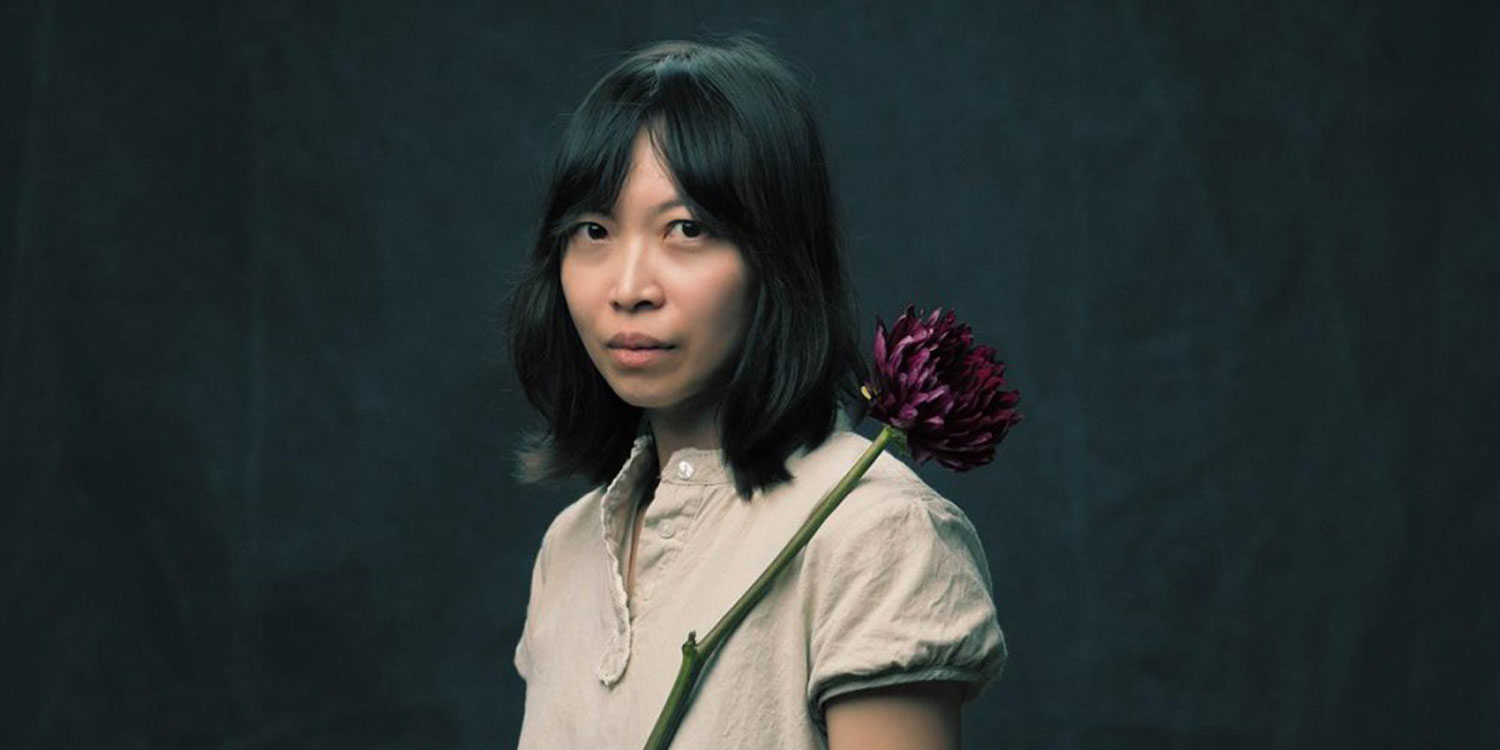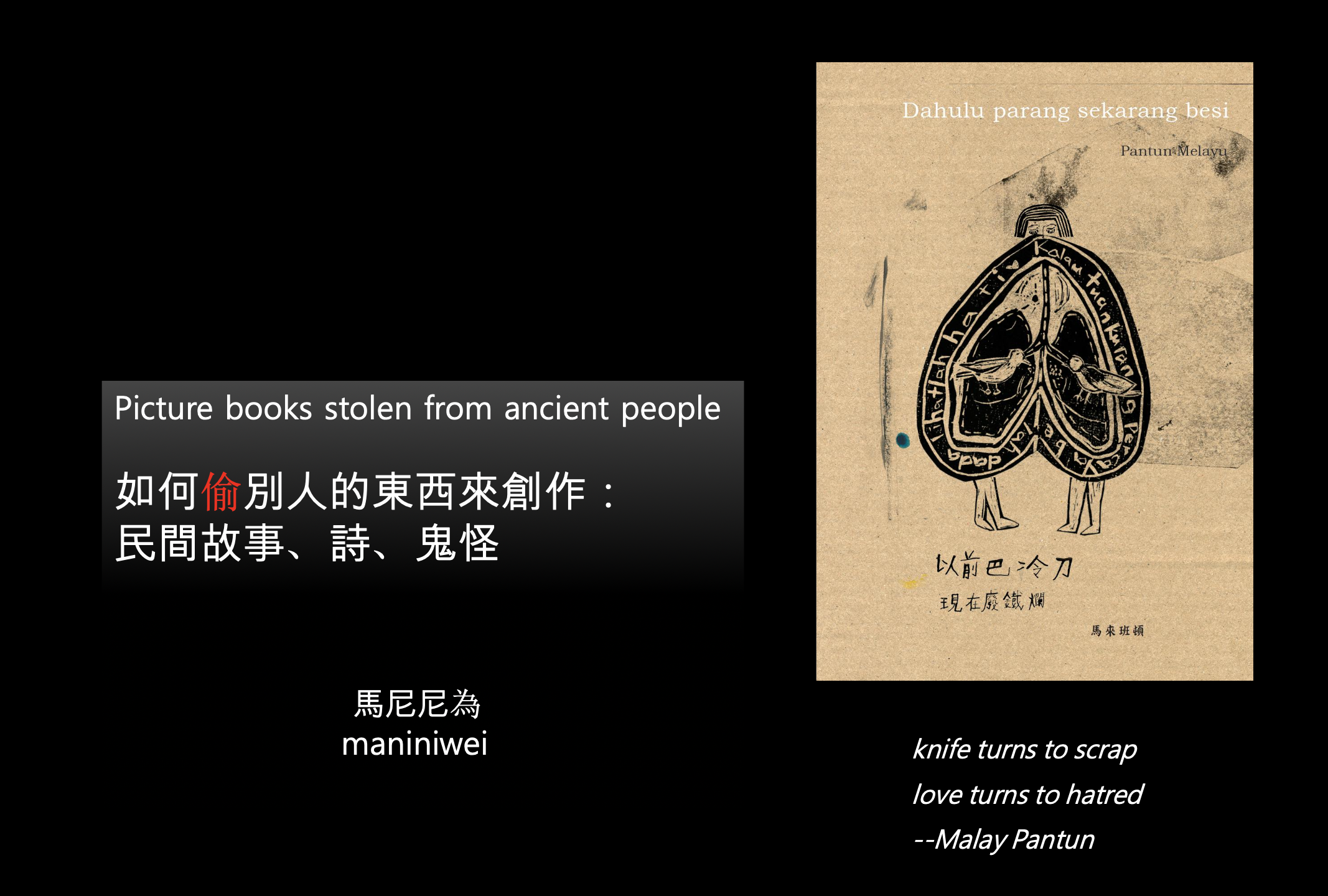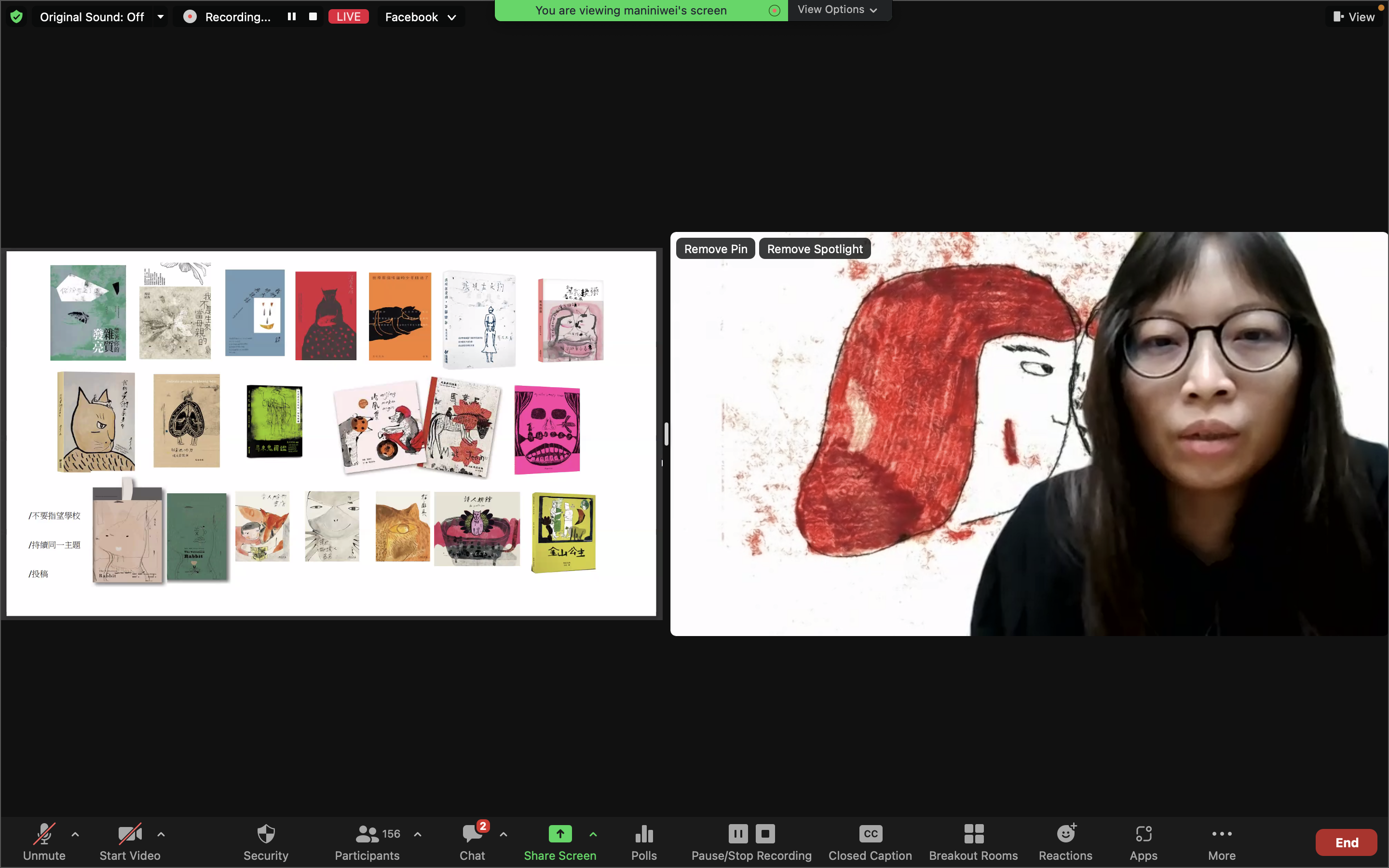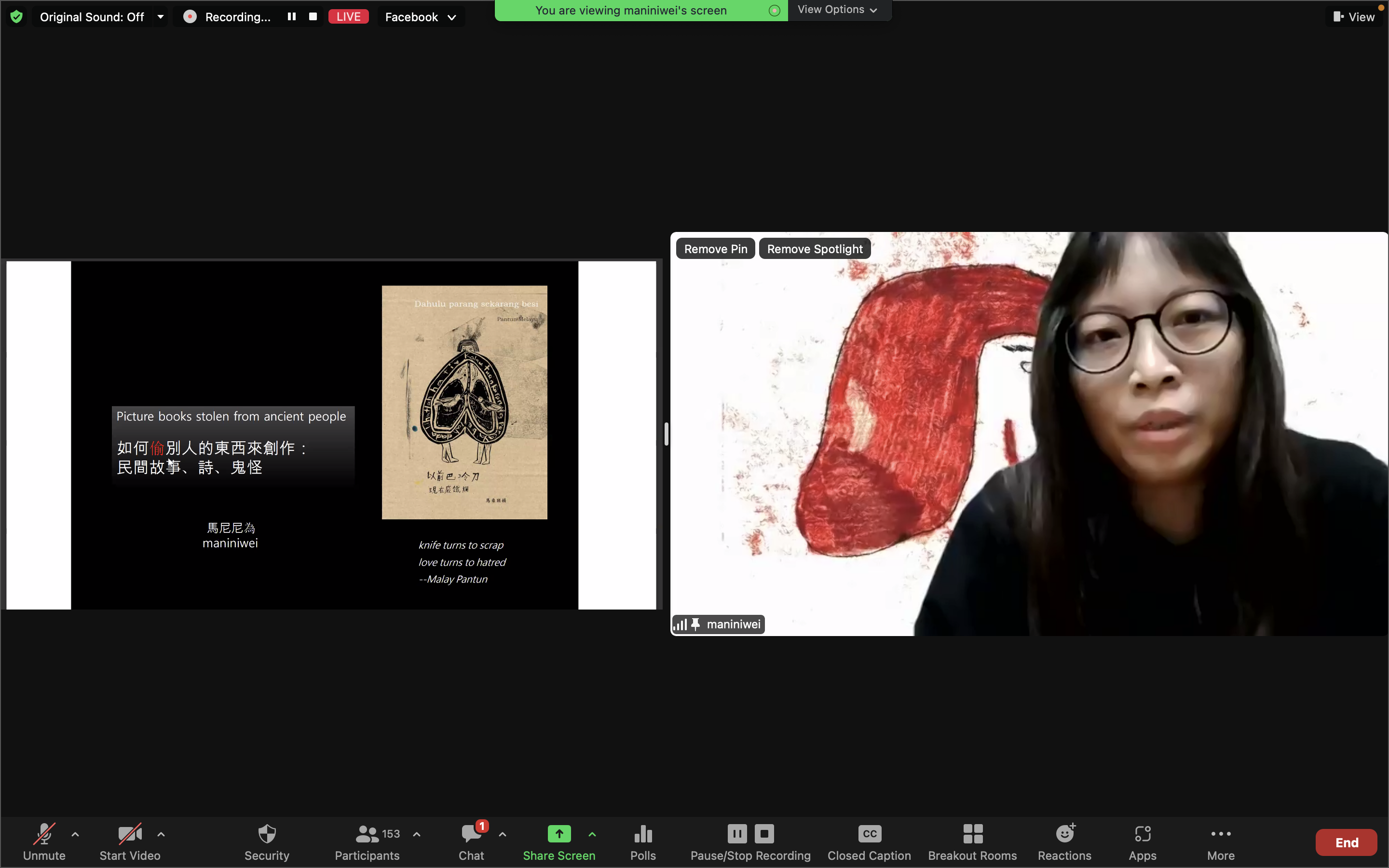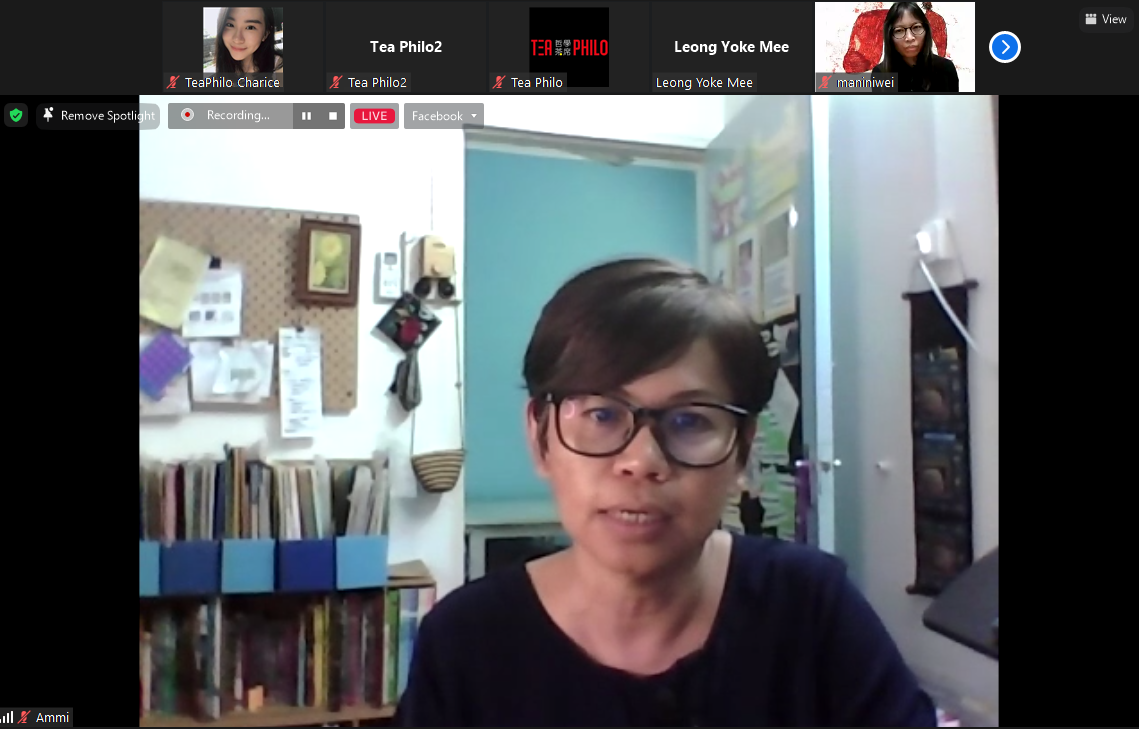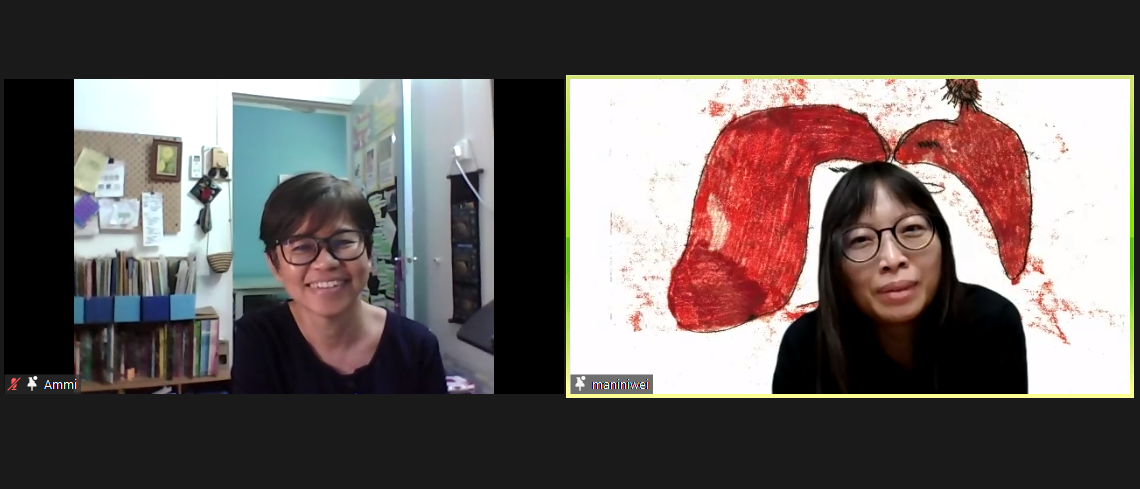Tea Philo 2022
Picture books stolen from ancient people
【Tea Philo】57
Guest Speaker:
Maniniwei
Speaker Bio:
A Malaysian Chinese, stay at Taiwan for 20 years.A fine arts student. A ten years gap before writing.Published over ten books included prose, poetry, picture books and a Malay Pantun illustrated book, selected as best books of year in literature category 2020. 2021 Hong Kong Baptist University writer in residence, 2021 Golden Tripod Awards Taiwan. 2022 first prize of Zhong Zhaozheng Literary Award for Prose. Received grants from Taiwan National Art and Culture Foundation for several times.My Sister’s empty house selected as THE BRAW (Bologna Ragazzi Award )100 Amazing Books.
Theme of Discussion:
Picture books stolen from ancient people
Summary:
Organised by the Taipei Economic & Cultural Office in Malaysia and produced by INXO Arts & Culture (L) Foundation, Tea Philo is a series of sharing sessions revolving around the discussion of philosophies and humanities. Luminaries from Taiwan are invited to share their experiences and engage with the Malaysian audience to encourage exchanges of ideas and experience. The latest Tea Philo E-Talk session titled “Transforming Stealing into Creating” featured Malaysian poet-artist Maniniwei as guest speaker. The talk was held in Mandarin and was moderated by Malaysian illustrator and educator Ammi Leong (Leong Yoke Mee), whose latest picture book “Anak Murid Yang Memakai Kain Cawat” was included in the 2022 “International Board on Books for Young People” selection list. The E-talk was broadcast via Zoom Meeting and Facebook Live on August 27th, 2022 and is available for rewatch on Tea Philo’s Facebook Page.
Maniniwei was born in Johor, Malaysia and is currently living in Taipei, Taiwan. She is an established poet, writer, artist, educator, and author of widely loved and received picture books. Some of her recently published works are: Dahulu Parang Sekarang Besi: Pantun Melayu (illustrated malay pantun), I am Now a Dog (poetry and illustration), The Poet’s Inn (picture book), and Not Born to Be a Mother (prose and illustration). Maniniwei is known to experiment with and utilise a variety of materials, mixed media methods, and collage, in her works to attain her signature magical, multilayered, dark style.
Maniniwei often describes herself as a “fine arts graduate who hates the fine arts department.” She mentioned that she did not have a great experience with art institutions, feeling that there was insufficient support and guidance for young artists. On the topic of theme and inspiration, Maniniwei mentioned how her work did not always come from a place of love: “It seems to be a general rule of thumb in schools to advise beginners to start with things they love; while that is a sensible advice, if someone asks me where to start now, I would suggest them to look into what they hate as well. I used to have a lot of hate and anger, so I started writing to express these feelings.”
“But of course, these bursts of strong emotions are not sustainable, and it comes to the question of how one continues to find new inspiration and subjects, and to create consistently. It’s a question I don’t have answers to, and I have yet to find any mentor or close friends for guidance or company as well.” said Maniniwei. What she does have, is a room full of books: “Books become my mentor. I learn and take inspiration from others, and slowly figure out along the way what it means to create.”
During the talk, Maniniwei shared a few quotes on creating and originality, one of which is by the Japanese creative director Morihiro Harano. “He said that there is no such thing as a completely original work, and that if one goes into the creative process with the desire to create something utterly new and original out of nothing, it makes the word ‘create’ sound much more stressful and difficult, which is true for me,” Maniniwei explains, “When I’m not trying to ‘create an original work’, I actually work more at ease.”
She took her book Dahulu Parang Sekarang Besi: Pantun Melayu, which was selected for the Golden Tripod Awards in 2021, as an example to illustrate how she “steals” from existing works and builds new stories upon them. “Pantun” is a traditional Malay oral poetic form used to express ideas and convey emotions; it is generally based on an ABAB rhyming scheme. As these poems were traditionally passed down orally, their original authors are unknown. To create this book, Maniniwei had researched, selected, translated, and transformed 37 pieces of Pantun poems into illustrations.
Another book of hers, Mat Jenin, is a picture book based on a Malay folktale. Maniniwei explained that as these folktales are passed down orally, there are a lot of versions out there: some more dramatic, some more educational, some with weird, fascinating details, and some with vague endings, which allow creative freedom.
“Many folktales that are passed down have a clear message that serves an educational purpose or feeds a certain dogma. They are ‘useful stories,’” said Maniniwei. “I have no interest in reproducing narratives like this, which is why I specifically picked the story of Mat Jenin and transformed it to become a ‘useless story’ with an open ending that invites readers’ own imagination and interpretation.”
Maniniwei ended the talk with a quote from I Wish, a Japanese film directed by Hirokazu Kore-eda: “The world needs useless things too. If everything has to have meaning, we would suffocate.”
Host:
Ammi Leong (Picture book artist and art educator)
Date:
27th August 2022 (SAT)
Time:
8pm-9.30pm


